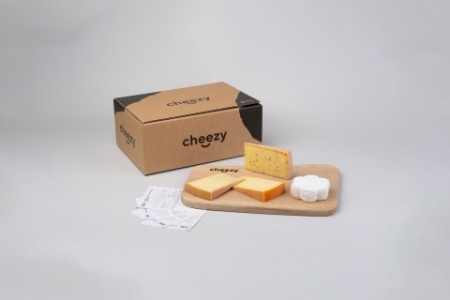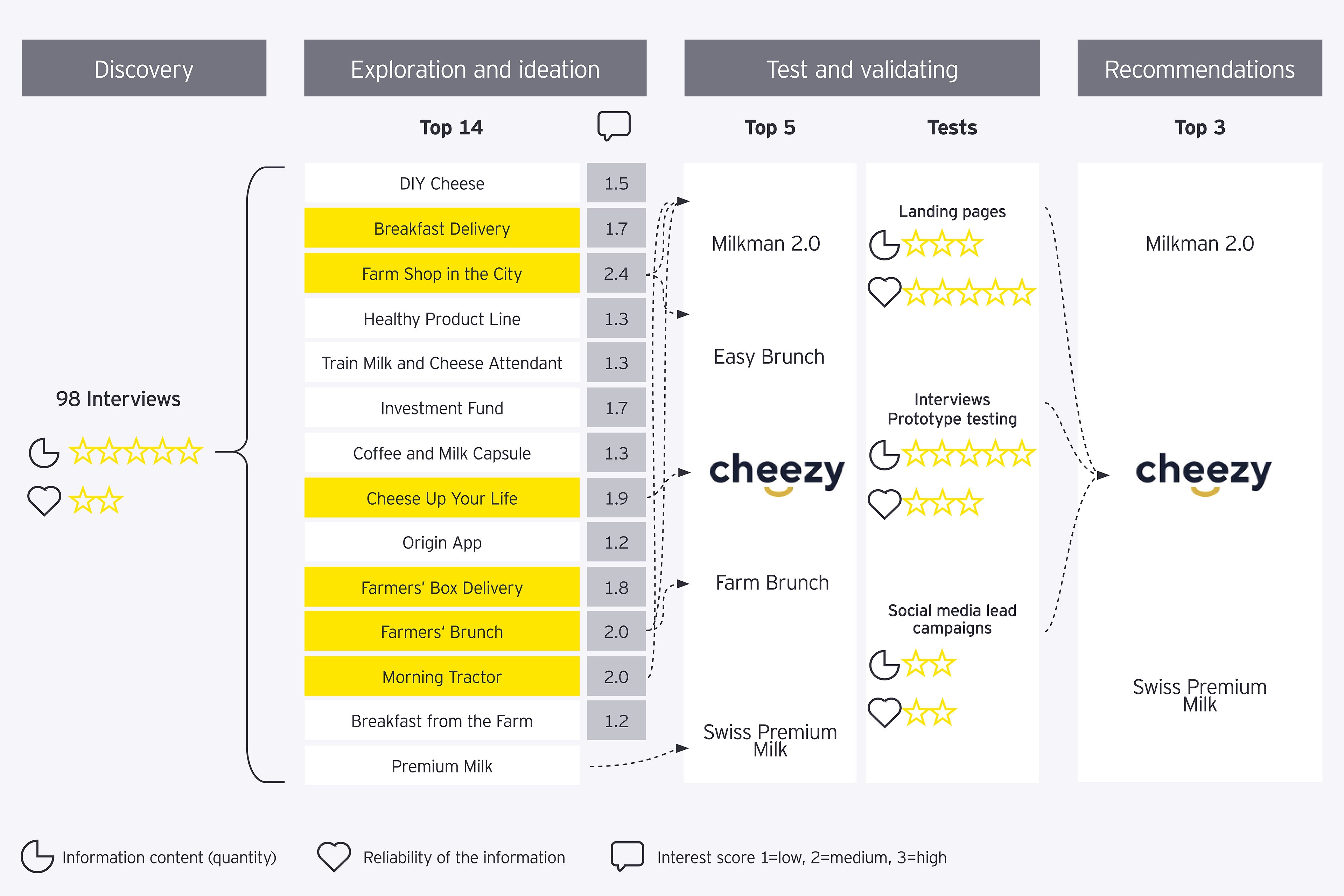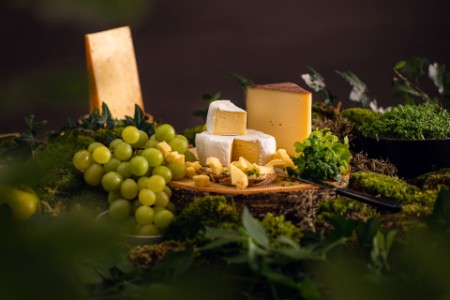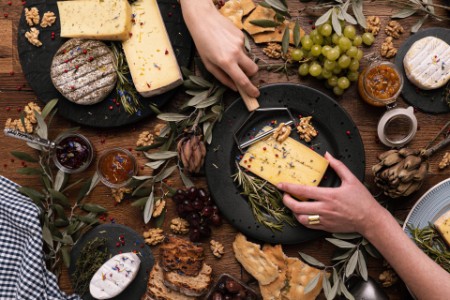How do you build a direct-to-consumer business the lean way?
Many businesses have the ambition of transforming around customer demand. One such business is mooh cooperative, a collection of Swiss dairy farmers, owned by its members. Mooh cooperative supplies milk from its members’ farms to four main customers who dominate the milk market.
But trading conditions are shifting. In the commodity milk market, the price paid to farmers is in decline. Changing consumer preferences are seeing milk alternatives boom in popularity. And government policies that have historically protected Swiss dairy farmers from competition abroad are under threat. This could open up the marketplace to dairy producers who offer lower prices but also lower welfare standards and different farming practices.
The CEO of mooh cooperative saw the CEO of EY etventure, which is part of the Innovation and Experience Design practice, giving a presentation about customer-centric business models, and the CEO approached EY etventure for help.
Mooh cooperative wanted to find an additional market for its milk to reduce its dependence on powerful B2B customers. Critically, any new venture could not be seen to be in competition with mooh cooperative’s main customers, which included dairy and cheese producers.
This kind of challenge is where the Innovation and Experience Design practice finds opportunity and excels. The practice encompasses 3,500 creative professionals across the world, enabling the EY organization to provide a boutique service that can provide results quickly.
EY etventure focuses on creating lasting corporate ventures – and it proposed exploring a digital business model directly targeting end consumers.

Creating a sustainable startup in just weeks
Mooh cooperative gave the EY etventure team an ambitious challenge: find and pre-validate new business models in three months, then get it to market in four months. The EY etventure team was confident they could launch even faster.
This demanded a strategy to transform at incredible speed despite COVID-19 restrictions. And with funding provided by the co-operative’s members, failure was not an option.
EY etventure began by carrying out consumer research on the street to gather insights about the potential customer base for a new milk-based offering. With these insights, the EY etventure team created multiple consumer personas and developed more than 100 new business ideas. These were refined down to 15 concepts, which were designed and research-tested at an agricultural fair. Mooh cooperative saw the value of moving forward the five strongest concepts, all enabling the co-op to enter a new market: direct-to-consumer.

To test the five concepts, the EY etventure team helped mooh cooperative by targeting consumers through interest and behavior patterns on social media platforms as well as keywords on search engines. The EY etventure team also built prototype landing pages for the proposed products, releasing them into the market as if they were already developed and ready to sell. The implementation of a tracking system helped enable a broad evaluation of interaction, including the frequency that advertising was displayed, the number of clicks on the advert and the individual steps users took on the prototype website. This enabled data to be gathered on the popularity and likely success of the concepts. For example, consumers were asked to enter their postal code to see if the product was available in their area by tracking how many people chose to enter their details for different products, the relative popularity of each product could be assessed.
This data-led approach enabled EY etventure to report with confidence on the viability of different ideas and empower mooh cooperative to make more informed and forward-focused decisions about the future direction of their business while lowering the risks around their new digital business.
Of the five prototypes launched, there was one clear winner: cheezy, a premium cheese delivery service offering Swiss cheeses that research identified as not available in major supermarkets. Part of cheezy’s appeal was bringing the romance of the farm shop directly to people’s homes, and offering the opportunity to feel, smell and taste fresh produce. This is a connoisseur’s cheese experience, with options for one-off purchase and monthly subscriptions that enable customers to taste a range of quality regional cheeses throughout the year – without leaving their homes.
Cheezy targeted an unexplored niche that offered something surprising and new – and wanted – to consumers in Switzerland. There are many traditional cheese shops in Switzerland, but they often don’t have a holistic online presence. By comparison, cheezy offers an innovative consumer-centric digital presence with a stylish design that competes with the best cheese subscription services globally with an easy-to-use website, or an app, that make the ordering and billing process as smooth as possible. The concept had two further key aspects that appealed to mooh cooperative: firstly, most consumers recognize differences in quality between cheeses and are willing to pay accordingly for delicious cheese; and secondly, it takes a lot of milk to make cheese.
EY etventure then rapidly deployed a fully-fledged multidisciplinary corporate startup team including venture building professionals, online marketers, designers and product managers. Every aspect of the launch and rollout was detailed and in scope – even writing a job spec and conducting interviews for a new CEO for cheezy.
Throughout the project, the EY etventure team worked in close collaboration, and in preparation for launch, made decisions that would enable a seamless transition of handover for mooh cooperative’s new direct-to-consumer business. For example, the EY etventure team chose customized off-the-shelf platforms, like Shopify for ecommerce, which are quick to build and easy to use.
A premium experience had to be a hallmark of the cheezy brand, so EY etventure sourced and created high-quality product packaging including papers, silks and handwritten courtesy slips packed with each order. The EY etventure team also developed innovative and truly sustainable packaging solutions to keep the product safe and fresh in transit. These included a bag made of recyclable organic hemp fiber and a frozen bottle of fresh water to keep the temperature below 5°C – which could then be enjoyed when thawed.
The team effectively built a new business end-to-end – developing a brand, including visual identity, value proposition and the product language; securing delivery partners and negotiating terms; setting up a customer service arm; designing marketing campaigns; building a website; and testing the entire supply chain for legal compliance.

A fast launch is the beginning of sustained success
Despite the ambitious launch time of three months, EY etventure helped establish the new cheezy business in just six weeks, which implemented pivotal aspects that enabled adjustments to be made to further improve sales and fulfilment processes.
Customer response
40%of customers chose a subscription to cheezy in the first four months of launching.
In the first four months of launching, 40% of customers chose a subscription to cheezy. In the first year of business, cheezy reached thousands of customers with a moderate marketing budget and shipped more than 1,000 orders during the winter holiday season alone. Eighteen months later, many of the earliest customers are still active, with 80% rating the service as excellent. Today, it is trending toward becoming a sustainable online business – which is also reflected in a great customer satisfaction score of 4.7 out of 5 from Trustpilot.
Cheezy achieved its business case within the first year, and the organization is now working toward a mid-term ambition of providing 10% of mooh cooperative’s profit.
There was excellent co-operation between mooh cooperative and the EY etventure team throughout the project, and the speed and efficiency with which the well-rehearsed multidisciplinary team got to work was astounding.
Cheezy is also expanding as a global brand. Meanwhile, the company is forging stronger links with small-scale artisan cheesemakers, not only supplying milk but buying back cheese, to drive the value of cheezy further into the supply chain and expand the market of its co-operatives. Cheezy is also finding that customers are growing the size of their shopping baskets and wants to leverage the consumer experience, so they launched additional experience-based products, such as online cheese-tasting events.
“There was excellent co-operation between mooh cooperative and the EY etventure team throughout the project, and the speed and efficiency with which the well-rehearsed multidisciplinary team got to work was astounding,” says René Schwager, CEO of mooh cooperative.
“It always felt like a startup rather than a big project, and at cheezy, we are taking the lean and agile methods we’ve learned and are now applying them fully to our core ongoing business,” says Schwager.
For many organizations, customer-centric business transformation may appear to be a lengthy, costly process with no guarantee of transformative results. But with an end-to-end approach based on research, insights, testing and iteration, the EY etventure team and cheezy demonstrated that it is truly possible to develop and launch a transformative business in under six months, even during a pandemic.
How EY can help
The team
Contact us
Like what you’ve seen? Get in touch to learn more.




